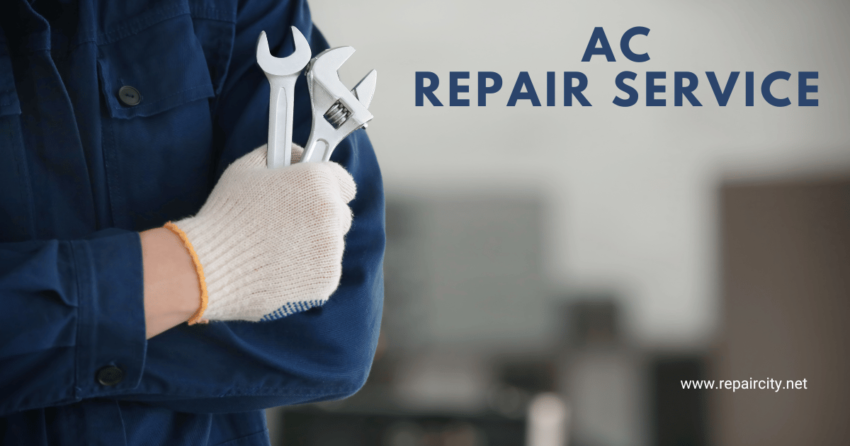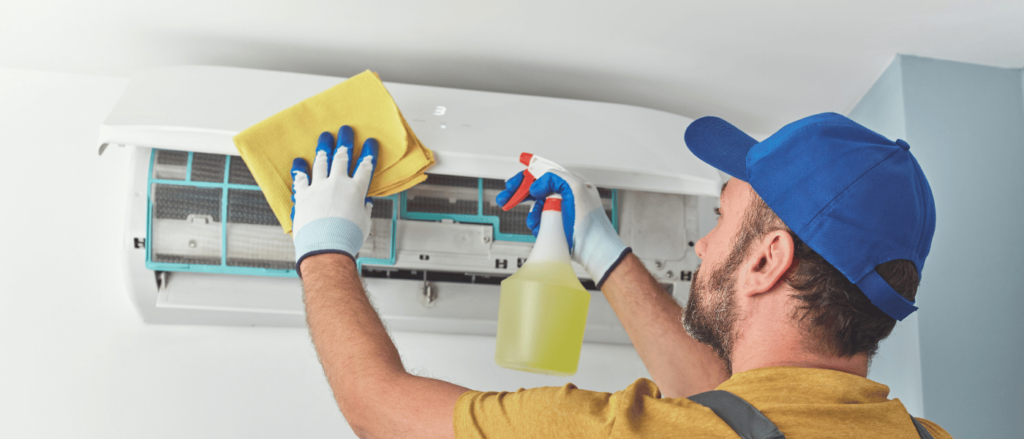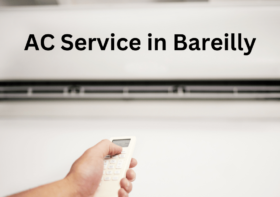Preventative Maintenance Tips For Your AC To Avoid Major Repairs In Bareilly

Just like any important appliance in your home, your air conditioning unit requires routine care to perform efficiently and last longer. By following some preventative maintenance tips, you can ensure your AC operates smoothly throughout the sweltering summers in Bareilly while preventing costly repairs in the future. From regular filter changes to checking refrigerant levels, these simple practices will help you extend the lifespan of your unit and keep your environment comfortable. Invest some time in understanding these maintenance tips to safeguard your investment and enjoy uninterrupted coolness when you need it most.
Table of Contents
Understanding Your AC System
The key to maintaining an efficient and effective air conditioning system lies in understanding its components and how they work together. Familiarizing yourself with your AC system will empower you to make informed decisions regarding maintenance and repairs. This knowledge not only enables you to identify potential issues early on but also helps you maximize the lifespan of your unit, ensuring a comfortable environment in your home.
Key Components of an AC Unit
For an air conditioning unit to function properly, it is necessary to understand its main components, including the compressor, condenser, evaporator, and expansion valve. Each part plays a vital role in the cooling process, allowing your system to regulate and circulate air efficiently. By recognizing how these components interact, you can better appreciate the importance of regular maintenance.
How AC Systems Operate
Among the various processes involved in air conditioning systems is the cycle of refrigerant gas, which absorbs heat from indoors and releases it outdoors. This continuous cycle ensures a comfortable indoor climate, regardless of external temperatures.

And as the refrigerant circulates, it transforms from liquid to gas and back again, effectively transporting heat away from your living space. The compressor pressurizes the refrigerant, allowing it to flow to the condenser, where it releases absorbed heat and cools down. Subsequently, the refrigerant moves to the evaporator, absorbing heat from the indoor air, which results in cool air being circulated throughout your home. Understanding this cycle is necessary for recognizing when your system may be underperforming and needs maintenance or attention.
Importance of Preventative Maintenance
If you want to extend the lifespan of your air conditioning unit, prioritizing preventative maintenance is vital. Regular servicing helps identify potential issues before they escalate into more significant repairs, ultimately keeping your AC running smoothly. When you commit to consistent maintenance, you’re not only ensuring optimal performance but also enhancing your indoor comfort during the hot summer months in Bareilly.
Cost-Effectiveness
Against investing in expensive repairs later, regular maintenance significantly reduces overall costs. Minor adjustments and cleanings, when performed routinely, can help prevent major malfunctions that might lead to costly replacements. By maintaining your air conditioning system, you save money in the long run while ensuring its reliability.
Enhanced Efficiency
Beside lowering repair costs, regular maintenance directly boosts your AC’s efficiency. A well-maintained air conditioning system uses less energy, which can lead to substantial savings on your utility bills. When all components are functioning at their best, your system can cool your home more effectively without overworking, prolonging its life.
Importance of enhanced efficiency cannot be overstated. When your air conditioner runs optimally, it not only consumes less energy but also maintains a consistent temperature throughout your home. Regular check-ups, including cleaning filters and checking refrigerant levels, contribute significantly to this efficiency. As a result, you’ll enjoy a comfortable living environment while lowering your monthly energy expenses.
Regular Maintenance Checklist
Some simple maintenance steps can significantly extend the lifespan of your AC unit. To keep it in optimal condition, establish a regular maintenance checklist that includes both monthly and seasonal tasks. By committing to these actions, you can prevent major repairs and ensure efficient operation throughout the year.
Monthly Tasks
Tasks you should perform monthly include checking and changing your air filters. Dirty filters can restrict airflow and diminish efficiency, so inspect them regularly and replace as needed. Additionally, clean the indoor and outdoor coils to enhance heat exchange and performance.
Seasonal Tasks
With changing seasons, there are vital tasks to tackle to maintain your AC’s effectiveness. At the start of summer, check refrigerant levels, clean the condensate drain line, and inspect the external unit for debris. These steps help ensure your system runs smoothly when temperatures soar.
In addition to these preliminary checks, consider scheduling a professional inspection at the beginning of each cooling season. A technician can identify any potential issues, clean components deeply, and optimize settings to enhance performance. Investing time in these seasonal tasks can save you from unexpected breakdowns and costly repairs, keeping your AC running efficiently when you need it most.
Signs Your AC Needs Attention
Your air conditioning unit is vital for comfort, and recognizing the signs it needs attention can save you from costly repairs. Pay close attention to any changes in performance, unusual sounds, or inconsistencies in temperature that may indicate underlying issues. Ignoring these signs can lead to more significant problems down the road.
Unusual Noises
On the whole, if you start hearing strange noises from your AC, it’s a signal that something might be wrong. Sounds like grinding, squeaking, or hissing could indicate mechanical failures or foreign objects obstructing components. Always listen for these sounds and have them checked promptly, as they often precede major malfunctions.
Fluctuating Temperatures
On the other hand, if you notice inconsistent temperatures in your space, it could mean your AC needs servicing. These fluctuations can affect your comfort and suggest problems with the thermostat, ducts, or refrigerant levels. Identifying the root cause early can prevent further complications.
| Thermostat issues | Calibration problems or faults might cause inaccurate readings. |
| Duct leaks | Leaky ducts can lead to uneven air distribution and temperature variations. |
| Refrigerant levels | Low refrigerant can cause the AC to underperform, leading to temperature inconsistencies. |
At this point, addressing fluctuating temperatures is vital for maintaining a comfortable environment. Ignoring these changes can lead to higher energy costs and further damage to your unit. Regularly check your thermostat settings, ensure your ducts are sealed properly, and consider having a technician inspect the refrigerant levels. This proactive approach will help keep your AC running efficiently.
| Regular Maintenance | Schedule annual inspections to identify issues early. |
| Thermostat Upgrades | Consider a smart thermostat for better control and efficiency. |
| Duct Inspection | Regularly check and seal ducts to maintain consistent airflow. |
DIY Maintenance Tips
Unlike waiting for a professional to service your AC, you can take simple steps to maintain it yourself. By performing routine checks, you can prolong the life of your unit and enhance its efficiency. Here are some DIY maintenance tips:
- Check and replace air filters regularly.
- Clean the outdoor condenser coils.
- Inspect ductwork for leaks.
- Clear debris around the unit.
This proactive approach not only saves you money but also prevents the inconvenience of unexpected breakdowns.
Air Filter Replacement
An air filter plays a vital role in keeping your AC running smoothly. You should check your air filter every month and replace it every 1 to 3 months, depending on usage and type. A clean filter ensures optimal airflow and efficiency, reducing strain on your AC system.
Clean Condenser Coils
Above all, keeping the condenser coils clean is imperative for efficient operation. These coils are responsible for dissipating heat, and if they are dirty, your AC unit will have to work harder to maintain cool temperatures.
Further, dirt and debris can significantly obstruct airflow, leading to potential overheating or operational failures. To clean the condenser coils, turn off the unit and gently brush away dirt with a soft brush or use a garden hose to rinse them. Make this a regular part of your maintenance routine to keep your system running effectively.
When to Call a Professional
Keep a close eye on your air conditioning unit’s performance. Should you notice any unusual sounds, persistent odors, or irregular cooling, it’s time to reach out to a professional technician. Addressing these issues early can prevent a minor annoyance from escalating into major repairs, saving you both time and money in the long run.
Complex Issues
Below are scenarios where you should absolutely seek expert help: refrigerant leaks, compressor malfunctions, and electrical problems. These issues require specialized tools and knowledge to diagnose and fix safely. Attempting a DIY approach could lead to more harm than good, making it vital to consult a professional.
Routine Inspections
Above all, schedule regular inspections for your AC system. Consistent maintenance checks help identify potential problems before they escalate, ensuring your unit operates efficiently and lasts longer.
To maintain the optimal performance of your air conditioning system, take the initiative to schedule routine inspections at least once a year. During these evaluations, professionals can clean vital components, check for wear and tear, and ensure that everything is functioning correctly. This proactive approach allows you to enjoy uninterrupted cooling while extending the lifespan of your unit. Don’t overlook the importance of these assessments—they are an investment in the long-term efficiency of your AC system.
Final Words
To wrap up, staying proactive with your AC maintenance in Bareilly can significantly extend its lifespan and improve its efficiency. By routinely cleaning or replacing filters, inspecting ducts, and scheduling professional check-ups, you can minimize the risk of major repairs and ensure your system runs smoothly. Taking these simple yet effective steps will help you enjoy a comfortable indoor environment without the stress of unexpected breakdowns. Prioritize your AC’s upkeep, and you’ll reap the benefits of a well-functioning system for years to come.
Frequently Asked Questions
1: What are the key components of an AC that require regular maintenance to prevent major repairs?
A: Key components that require regular maintenance include the air filters, condenser coils, evaporator coils, and refrigerant levels. Changing or cleaning air filters every month keeps airflow unobstructed. Cleaning condenser coils helps improve efficiency, while the evaporator coils should be checked for any dirt buildup. Regularly checking refrigerant levels ensures the system is functioning properly and prevents issues related to low refrigerant.
2: How often should I schedule professional maintenance for my AC unit?
A: It is advisable to schedule professional maintenance for your AC unit at least once a year, ideally before the cooling season begins. This annual check-up allows technicians to perform thorough inspections, clean vital components, and identify any potential issues before they escalate into significant repairs. Scheduling maintenance in early spring ensures your AC is operating efficiently before the peak summer heat hits Bareilly.
3: What DIY maintenance tasks can I do to keep my AC running smoothly?
A: Several DIY maintenance tasks can help keep your AC running efficiently. Start by cleaning or replacing your air filters monthly, as clogged filters can reduce airflow and efficiency. Additionally, check the outdoor unit for debris like leaves or grass clippings that could obstruct airflow. You can also ensure vents are unobstructed and check the thermostat settings. Keeping the area around the AC unit clear can enhance circulation and overall performance.



Leave a Reply